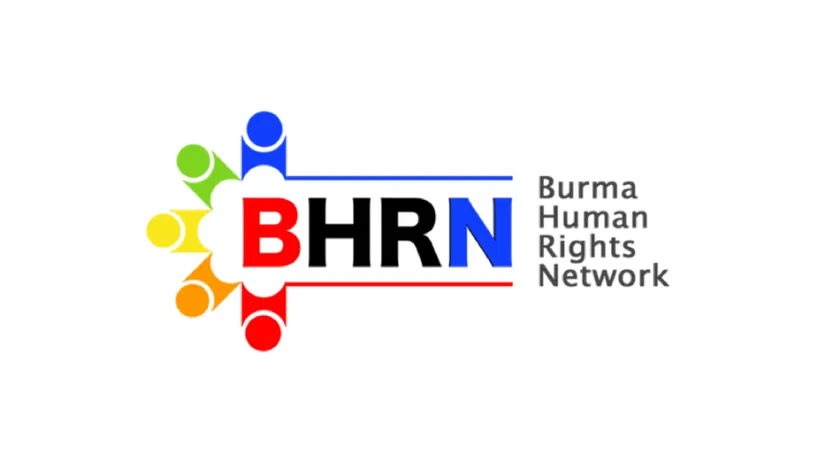Rohingya Villages in Desperate Situation as New Conflict Continues
31 January 2019

London, UK — Rohingya Villagers in Northern Rakhine State have informed BHRN of food and medical shortages as the conflict intensifies in the region between Burmese security forces and the ethnic Rakhine armed group, the Arakan Army (AA). While the International Committee of the Red Cross has been able to help several Rakhine villagers displaced by the conflict, Rohingya say restrictions imposed by the military have left them unable to receive aid. Some Rohingya villagers that spoke to BHRN have said that they haven’t been able to get aid since August 2017. Recently, Burma military has declared a unilateral ceasefire with most of the country’s many armed groups, they have excluded the Arakan Army from it and focused on isolating and targeting the Rakhine and Rohingya communities since.
“Burma must ensure the safety and security of all civilians. Burma has already restricted aid going into the area, forcing those who have nothing to do with the fighting to suffer needlessly. The international community has an obligation to take a stand against such actions, and prevent them from worsening as the conflict is likely to continue,” said BHRN Executive Director, Kyaw Win.
At the same time, Rohingya in Rathedaung Township have informed BHRN of fighting near the villages of Ye Khone Taing and Aa Ka Taung and said that Burmese soldiers have stationed in their villages, putting civilians at increased risk. Those in the area reported gunfire and what they believed to be artillery in fighting between the Burmese security forces and the Arakan Army. The Burmese military has also deployed helicopters in the conflict following statements from Aung San Suu Kyi’s administration’s calls to ‘crush’ the insurgents.
While the majority of Rohingya living in Northern Rakhine State fled to Bangladesh in 2017, many remained behind and have continued to suffer from lack of food and medicine while being unable to find work or food as restrictions on movement imposed by Burmese authorities have prevented them from leaving their villages. Rohingya villagers in rural areas of Buthidaung and Rathedaung have said that people are again fleeing due to these shortages and fear of spillover of violence from the conflict.
The Burmese Government must allow full access to NGOs to all areas in Rakhine State, especially to those areas facing conflict where people are most in need and most vulnerable. Burma must work towards a ceasefire with the Arakan Army in concert with its ceasefire with other armed groups. The International Community cannot wait for another full-blown crisis to emerge before acting and must address these issues now before they are beyond repair. To ensure a peaceful solution and avoid further chaos and suffering, sanctions against the Military and their business interests must be on the table as a means to ensure consequences for egregious behaviors.
Journalists are facing increasing pressure in Burma and are not free to criticize government policies or the actions of the military. The rejection of the Reuters journalists’ appeal sends a strong message to the international community that the NLD and Burmese military do not value free speech or the media and will silence anyone who tries to expose their crimes. As the regime punishes these two journalists we must ask why other countries are not condemning this or taking action to punish the regime for such egregious behavior. For Burma to be truly free the world must end its silence and inaction.
Background on the Burma Human Rights Network (BHRN)
BHRN is based in London and operates across Burma/Myanmar working for human rights, minority rights and religious freedom in the country. BHRN has played a crucial role in advocating for human rights and religious freedom with politicians and world leaders.
Media Enquiries
Please contact:
Kyaw Win
Executive Director
Burma Human Rights Network (BHRN)
E: [email protected]
T: +44(0) 740 345 2378
Download this press release HERE.
၎
င
၎
၎
Announcements
28 February 2025
Asian NGO Network on National Human Rights Institutions , CSO Working Group on Independent National Human Rights Institution (Burma/Myanmar)
Open letter: Removal of the membership of the dis-accredited Myanmar National Human Rights Commission from the Southeast Asia National Human Rights Institution Forum

Progressive Voice is a participatory rights-based policy research and advocacy organization rooted in civil society, that maintains strong networks and relationships with grassroots organizations and community-based organizations throughout Myanmar. It acts as a bridge to the international community and international policymakers by amplifying voices from the ground, and advocating for a rights-based policy narrative.